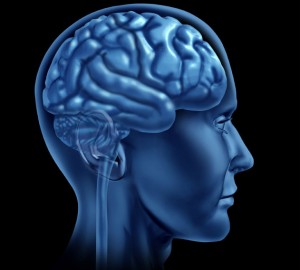 It is easy to take our complex body for granted, running about our days going to work, picking up the kids, making dinner, and simply having fun, never paying mind to the complex network of amazing synchronicities that keep our body moving like clockwork every day.
It is easy to take our complex body for granted, running about our days going to work, picking up the kids, making dinner, and simply having fun, never paying mind to the complex network of amazing synchronicities that keep our body moving like clockwork every day.
Most of the body’s activities are governed, headed and operated by the brain. And each part of the brain holds the priceless responsibility of controlling different body functions such as breathing, temperature regulation and blood pressure.
It is the center for emotions to wrap our lives; thoughts to keep things in wonder, memories to keep track of ourselves and judgment to maneuver us in the right direction. Did you know that the thalamus controls our pain perception; or that the hypothalamus controls the cardiovascular and digestive systems along with releasing hormones from the pituitary gland? Probably not.
And unless you are a brain surgeon, knowing which lobe does what is not needed for us to drink our cup of coffee in the morning.
Here are a few interesting facts about the brain.
It is about 75 percent water with fat the next abundant component. Humans have the largest brain to body ratio than any other animal. And the blood vessels, if stretched end to end, would be 100,000 meters long.
The brain uses 20 percent of the total blood and 20 percent of the total oxygen circulating through the body. The brain processing speed can get up to 120 meters per second and generate 10-23 watts of energy when we are awake. And it doesn’t sleep. How can it with all its responsibility! Funny thing, when the body sleeps the brain becomes more active.
Even though the brain weighs approximately three pounds, it consumes 25 percent of the calories we eat in a day in the form of glucose.
What most people don’t realize is even the brain needs exercise for good health, and not necessarily the mental ones. Brain fitness depends on physical exercise to keep it fit. Physical exercise not only has positive effects toward the hippocampus (a major component of the brain that is related to learning, memory and ability to organize and make decisions), it helps the brain create new cells. Just a moderate amount of exercise (such as a brisk 10 minute walk three times a week) not only improves memory, but actually reverses age-related shrinking of the hippocampus.
Strength training, besides strengthening skeletal muscles, actually makes the memory muscle stronger as well. The brain chemical stimulated by exercise creates new neurons, repairs cell damage and strengthens the connection between brains cells. Yoga and Pilates are good for increasing deep breathing to oxygenate the blood.
Neuroplasticity is a term that denotes the brain’s ability to learn new physical and mental tasks in an integrative manner. So learning or adapting to something new remaps our existing neurons, forming new neural pathways and keeps our brain wired and ready.
Be socially, mentally and physically active to power up the brain with health. Learn a musical instrument or find a hobby that includes making friends. Eating for brain health means avoiding saturated and trans fats but includes monounsaturated and other good fats (avocado, coconut, olive). Raw almonds, sunflower seeds and walnuts are wonderful sources of vitamin E. Indulge in vegetables and fruits such as blueberries and kale for oxidative stress protection.
Eat low glycemic foods that don’t spike blood sugar levels. Eat more frequently with smaller meals. Of course no smoking and limit alcohol. Drink lots of filtered water, get plenty of rest and sleep.
In turn, your brain will graciously propel you through the world in its anonymous and dependable way.
Contact Gina at Ima_gina_tion@yahoo.com.




